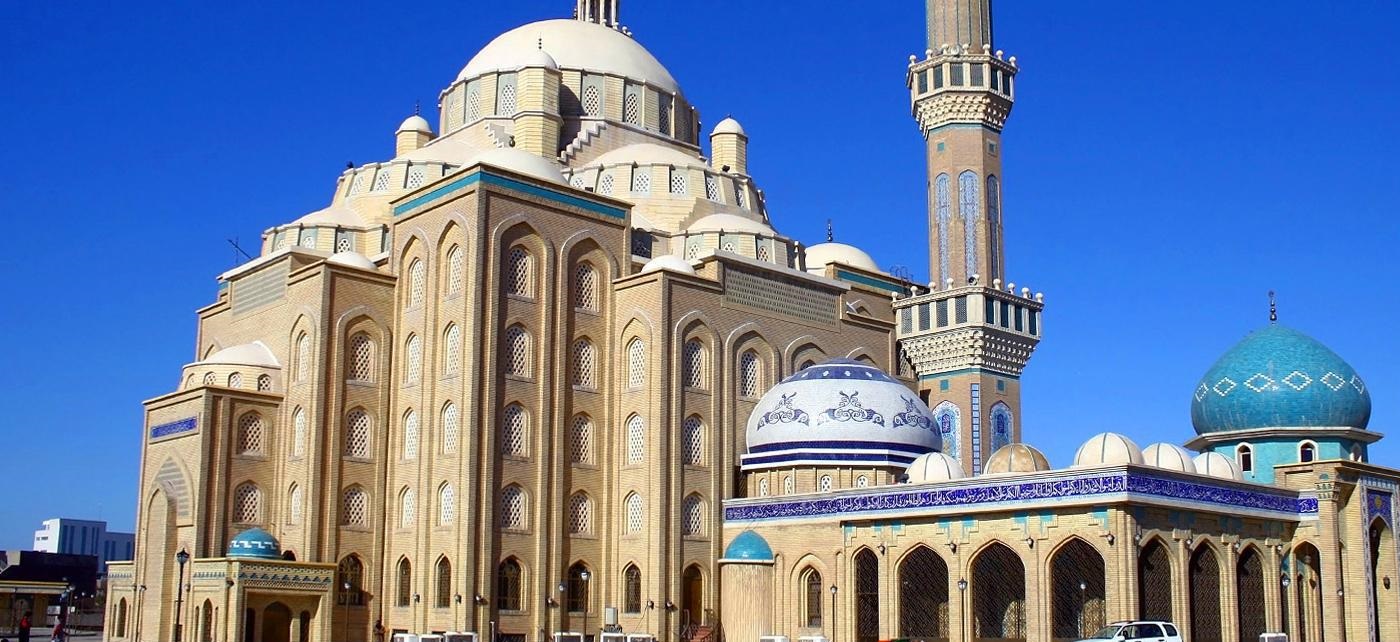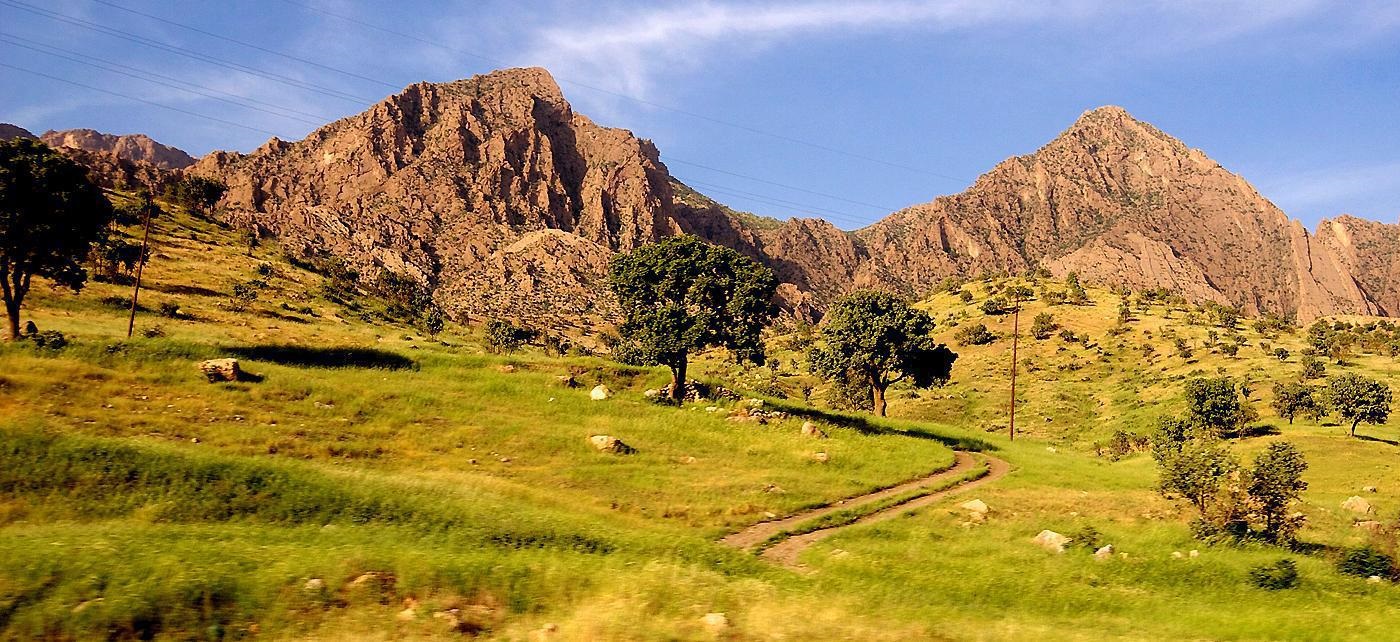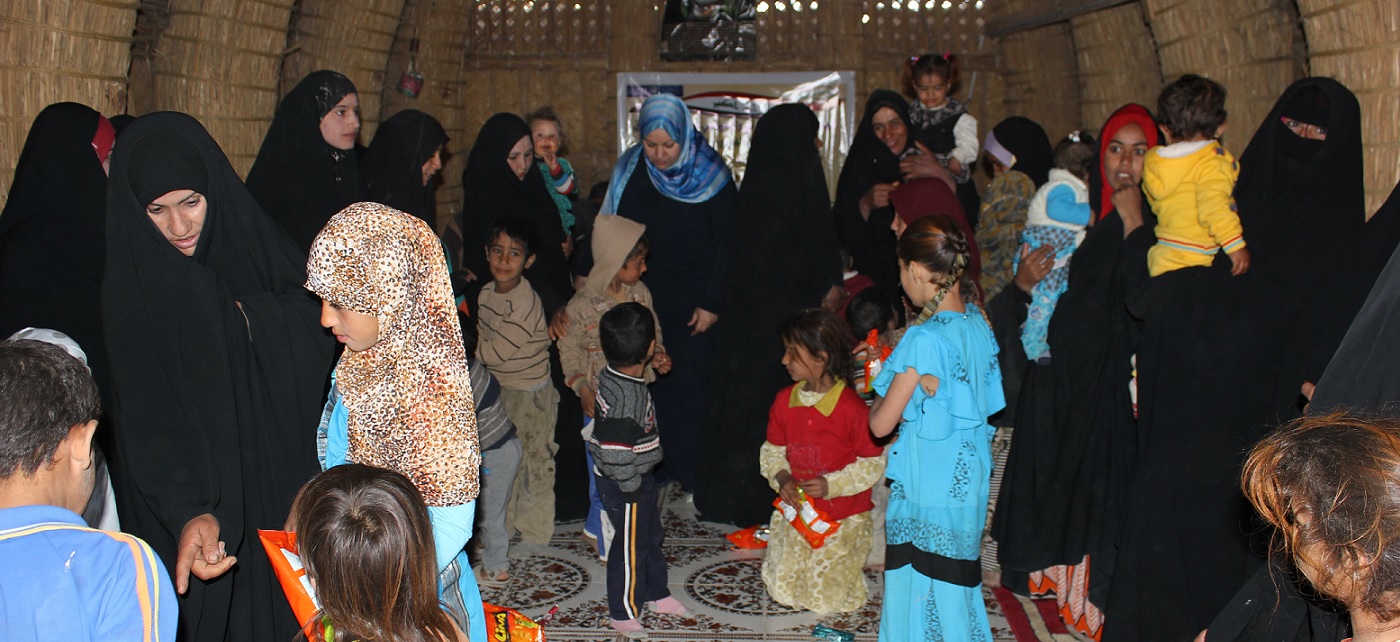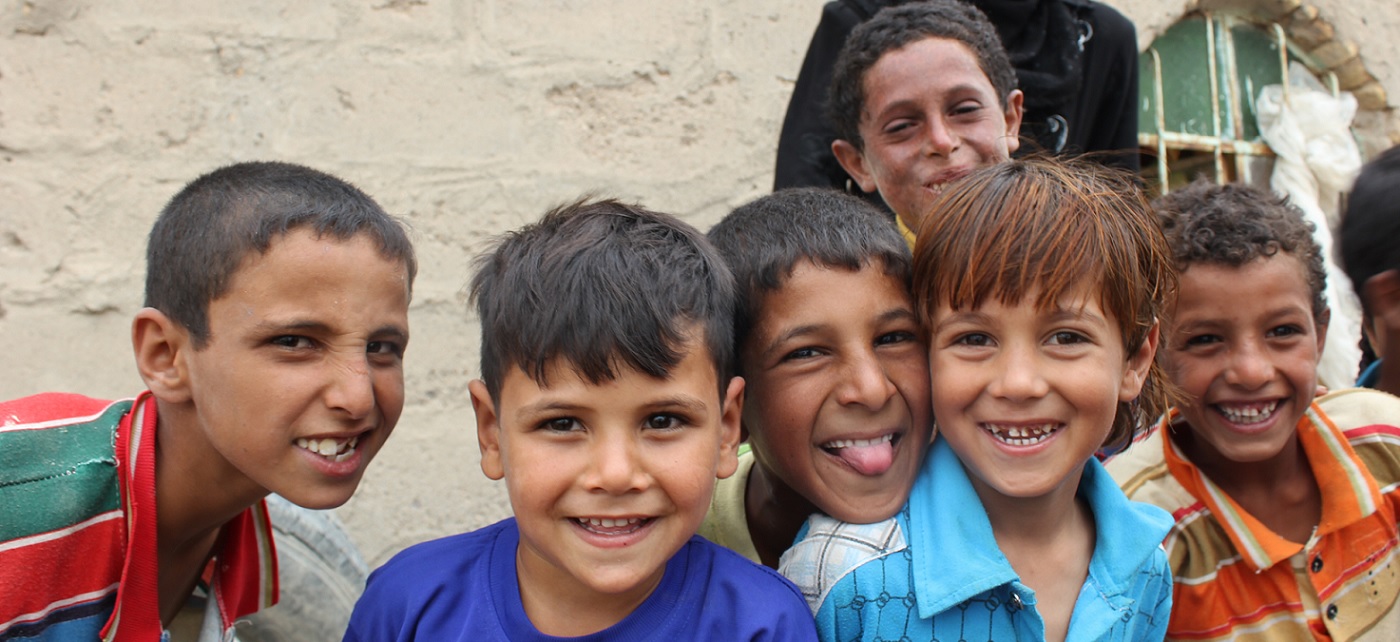Iraq, officially the Republic of Iraq is a country in Western Asia spanning most of the northwestern end of the Zagros mountain range, the eastern part of the Syrian Desert and the northern part of the Arabian Desert.
Iraq is bordered by Jordan to the west, Syria to the northwest, Turkey to the north, Iran to the east, and Kuwait and Saudi Arabia to the south. Iraq has a narrow section of coastline measuring 58 km (35 miles) on the northern Persian Gulf. The capital city, Baghdad is in the center-east of the country. Two major rivers, the Tigris and Euphrates, run through the center of Iraq, flowing from northwest to southeast. These provide Iraq with agriculturally capable land and contrast with the steppe and desert landscape that covers most of Western Asia.
Historically, Iraq was known in Europe by the Greek toponym 'Mesopotamia' (Land between the rivers). Iraq has been home to continuous successive civilizations since the 6th millennium BC. The region between the Tigris and Euphrates rivers is identified as the cradle of civilization and the birthplace of writing and the wheel. At different periods in its history, Iraq was the center of the indigenous Akkadian, Sumerian, Assyrian, Babylonian, Hellenistic, Parthian, Sassanid, and Abbasid empires. It was also part of the Achaemenid, Roman, Rashidun, Umayyad, Mongol, Safavid, Afsharid, and Ottoman empires, and under British control as a League of Nations mandate.
Iraq was under Ba'ath Party rule from 1968 to 2003; in 1979 Saddam Hussein took control and remained president until 2003 after which he was unseated by a US�led invasion. On October 15, 2005, more than 63% of eligible Iraqis came out across the country to vote on whether to accept or reject the new constitution. On October 25, the vote was certified and the constitution passed with a 78% overall majority, with the percentage of support varying widely between the country's territories. The new constitution had overwhelming backing among the Shia and �urdish communities, but was overwhelmingly rejected by Arab Sunnis. Three majority Arab Sunni provinces rejected it.
Iraq's economy is dominated by the oil sector, which has traditionally provided about 95% of foreign exchange earnings. In the 1980s financial problems caused by massive expenditures in the eight-year war with Iran and damage to oil export facilities by Iran led the government to implement austerity measures, borrow heavily, and later reschedule foreign debt payments. Iraq suffered economic losses from the war of at least US$100 billion. After hostilities ended in 1988, oil exports gradually increased with the construction of new pipelines and restoration of damaged facilities. A combination of low oil prices, repayment of war debts (estimated at around US$3 billion a year) and the costs of reconstruction resulted in a serious financial crisis which was the main short term motivation for the invasion of Kuwait.
Iraq is a Shia majority country and contains the sacred Shia cities of Najaf and Karbala. Most sources estimate that around 65% of Iraqis follow Shia Islam, and around 35% follow Sunni Islam, however the question of religious demographics is controversial and some Iraqis who follow Sunni Islam dispute these figures, including an ex-Iraqi ambassador, referring to American sources. claiming that many reports only include Arab Sunnis as "Sunni", missing out the Kurdish and Turkmen Sunnis. Most Kurds are Sunnis, although the Feyli Kurds are largely Shia.
The dispersion of native Iraqis to other countries is known as the Iraqi diaspora. There have been many large-scale waves of emigration from Iraq, beginning early in the regime of Saddam Hussein and continuing through to 2007. The UN High Commission for Refugees has estimated that nearly two million Iraqis have fled the country after the Multi-National invasion of Iraq in 2003, mostly to Syria and Jordan.



